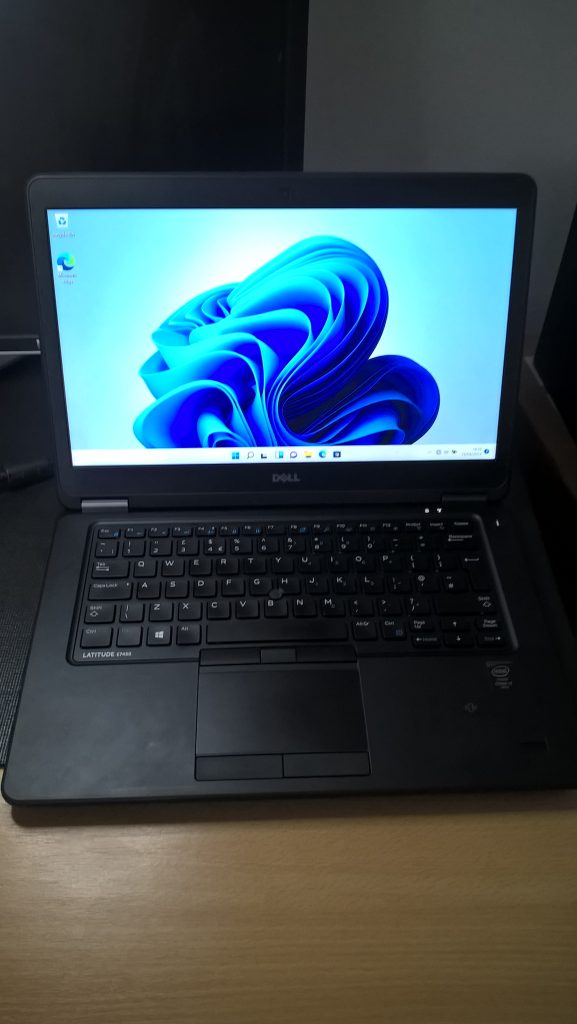A Comprehensive Guide to Choosing the Best Computer for College
As you embark on your college journey, selecting the right computer is a crucial decision. In this digital age, a reliable computer can significantly enhance your educational experience, allowing you to complete assignments, stay organized, and connect with peers and professors. For freshmen like yourself majoring in fields such as Criminal Justice, where intense programming or graphic design might not be necessary, the quest for a suitable machine ideally balances performance, portability, and longevity.
This blog post aims to equip you with the insights you need to make an informed decision about buying a computer for college. We will delve into the essential features to look for, evaluate popular computer options, and explore where and when to purchase your new machine.
Understanding Your Needs
Before diving into specific models and brands, this crucial first step is to identify your specific needs based on your major and lifestyle.
Basic Requirements for a Criminal Justice Major
As a Criminal Justice major, your primary computer requirements may include:
– Document Editing: You will likely need Software such as Microsoft Word for essays and reports.
– Presentation Creation: Applications like Microsoft PowerPoint will aid in developing presentations.
– PDF Reading and Annotation: Many academic articles in your field will be available as PDFs, necessitating compatible Software.
With these needs in mind, a robust yet lightweight machine would serve you well. You’re looking for something that can handle multitasking without lagging and is portable enough to carry around campus.
Evaluating Performance Features
When examining potential computers, several performance features are vital to consider:
1. Processor (CPU)
The processor is the brain of your computer. For general college use—web browsing, document editing, and video streaming—an Intel Core i5 or an equivalent AMD Ryzen 5 should suffice. If you want to future-proof your investment for graduate studies or beyond, consider the newer processors (10th generation or higher for Intel).
2. RAM (Memory)
RAM allowances determine how many applications you can run simultaneously. For most college students, 8 GB of RAM is the minimum recommended amount. If your budget allows, opting for 16 GB can offer greater flexibility and longevity, especially if you tend to keep multiple tabs and applications open at once.
3. Storage
An SSD (Solid State Drive) is preferable over an HDD (Hard Disk Drive) for faster performance. Most student documents and applications can run efficiently on a 256 GB SSD, but if you handle or store large files, such as videos or images, consider larger storage options.
4. Battery Life
As you highlighted in your original post, a long-lasting battery is essential. Aim for a laptop that offers at least 8-10 hours of battery life, which is standard for many modern laptops.
Exploring Popular Laptop Options
Based on your requirements, here are some top contenders in the market, including your consideration of the MacBook Air, which has proven to be a favorite among students.
1. MacBook Air
The MacBook Air has garnered praise for its sleek design, robust performance, and seamless integration with other Apple products, making it an excellent choice for students.
- Performance: The latest models are powered by Apple’s M1 (or M2) chip, which offers outstanding performance for everyday tasks while maintaining impressive battery life (up to 18 hours).
- Portability: Weighing around 2.8 pounds, it’s easy to transport on campus.
- Ecosystem: If you already own an iPhone, the Air’s Continuity features, like Universal Clipboard and Handoff, enhance productivity.
The MacBook Air is an excellent investment that many users find lasts throughout their undergraduate and graduate studies.
2. Dell XPS 13
Known for its impressive display and build quality, the Dell XPS 13 provides a strong competitor in the Windows laptop category.
- Performance: Equipped with Intel’s latest processors and up to 16 GB of RAM, this laptop can handle multiple applications seamlessly.
- Battery Life: It boasts around 12 hours of battery life, a solid option for day-long classes.
- Design: Its compact and lightweight frame is equally appealing for students on the go.
3. Microsoft Surface Laptop 4
Another valuable contender is the Microsoft Surface Laptop 4, especially if you appreciate a touch-screen interface.
- Performance and Design: The Surface Laptop combines performance with a high-fidelity display and an ultra-slim design. It also offers variants with up to 32 GB RAM and 1 TB SSD.
- Battery Life: Like the previous models, it also provides long battery life (around 11-13 hours), making it reliable for all-day use.
4. Lenovo IdeaPad Flex 5
For those on a budget, the Lenovo IdeaPad Flex 5 is a versatile and affordable option.
- Performance: This 2-in-1 laptop provides a good balance with Ryzen 5 processors, 8 GB RAM, and 256 GB SSD storage, suitable for typical college tasks.
- Convertible Design: Its 360-degree hinge allows for a tablet mode, ideal for presentations and note-taking.
- Affordability: Typically priced lower than more premium models while still delivering adequate performance.
Purchasing Considerations
Once you’ve identified the laptop that best fits your needs, the next steps involve choosing where and when to buy.
Where to Buy Your Laptop
The choice of retailer plays a significant role in both pricing and customer support. Here’s a breakdown of popular options:
-
Best Buy: Known for a robust selection, Best Buy offers in-store assistance, allowing you to watch demos and receive personalized recommendations. They also frequently run student discounts and bundles that can add value.
-
Amazon: Best known for competitive pricing, Amazon often features sales on the latest electronics. Check for verified reviews and warranties to ensure reputable purchases.
-
University Bookstore: Purchasing from your university bookstore may offer student discounts or equipment specifically chosen for your college program. Additionally, the convenience of physically examining models may be beneficial.
-
Manufacturer Websites: Going directly through Apple, Dell, or Microsoft can sometimes yield exclusive online discounts, student pricing, or financing options that retail stores may not offer.
-
Walmart: With competitive pricing and a variety of selections, Walmart is another option. Ensure to check stock availability and delivery options, especially during busy school seasons.
When to Buy a Laptop
Timing can greatly affect your purchase’s financial aspect. Here are optimal buying periods:
-
Back to School Sales: Late summer sales or promotions are prevalent in anticipation of the academic year, with many retailers offering sizable discounts on electronics.
-
Black Friday/Cyber Monday: These holiday shopping events occur in late November and early December, providing opportunities for significant savings on technology.
-
End of Semester Sales: Retailers may clear inventory ahead of new models. Consider checking prices in late April or December.
-
Seasonal Sales Events: Keep an eye out for sales tied to events such as Memorial Day, Fourth of July, or Labor Day, which can also yield good deals on electronics.
Additional Tips for College Students
- Student Discounts: Always inquire if a retailer offers student discounts. Many companies like Apple and Microsoft provide special pricing for higher education students.
- Warranty and Protection Plans: Consider tech insurance or extended warranties to protect your investment, especially if you’re prone to accidents.
Conclusion
Investing in a suitable computer as you start your academic journey as a Criminal Justice major is both a practical and vital step. Factors such as performance, battery life, and portability are essential considerations to ensure you select a machine that meets your needs and lasts through your undergraduate and into graduate studies.
As identified, top choices like the MacBook Air, Dell XPS 13, Microsoft Surface Laptop 4, and Lenovo IdeaPad Flex 5 provide varying features that cater to student life. By buying strategically, during discount periods, and from reliable retailers, you can optimize your investment in technology and enhance your overall college experience.
Armed with this comprehensive guide, you’re now better equipped to make a choice that will not only meet your current academic requirements but will also support you as you advance into graduate school and beyond. Happy shopping!
Share this content:




Response to “What is the best computer for college?”
Choosing the right computer for college is indeed a pivotal decision, and your comprehensive guide highlights essential aspects that can aid students significantly. I’d like to add on a few crucial points and personal experiences based on my technical expertise.
Upgradeability: It’s worth noting the importance of future-proofing your purchase. While the focus is on the current needs, consider whether the computer’s RAM and storage can be upgraded later. Many models allow for additional RAM or SSD upgrades, which can save you from a costly replacement in a few years.
Operating System: Your mention of MacBook Air and Windows options is well-placed. Depending on your field of study, certain Software may only run on specific operating systems. For instance, criminal justice majors might have access to specific legal research tools or analytics Software that run efficiently on Windows.
Consideration of Refurbished Models: Another tip would be to explore certified refurbished units from reputable sellers. These can provide significant savings while delivering nearly the same performance as new units for students on a strict budget.
Performance Benchmarks: To further evaluate options like the Dell XPS 13 and the MacBook Air, use benchmarking tools such as Geekbench or UserBenchmark to see how they generally perform under load compared to competitors. This can give